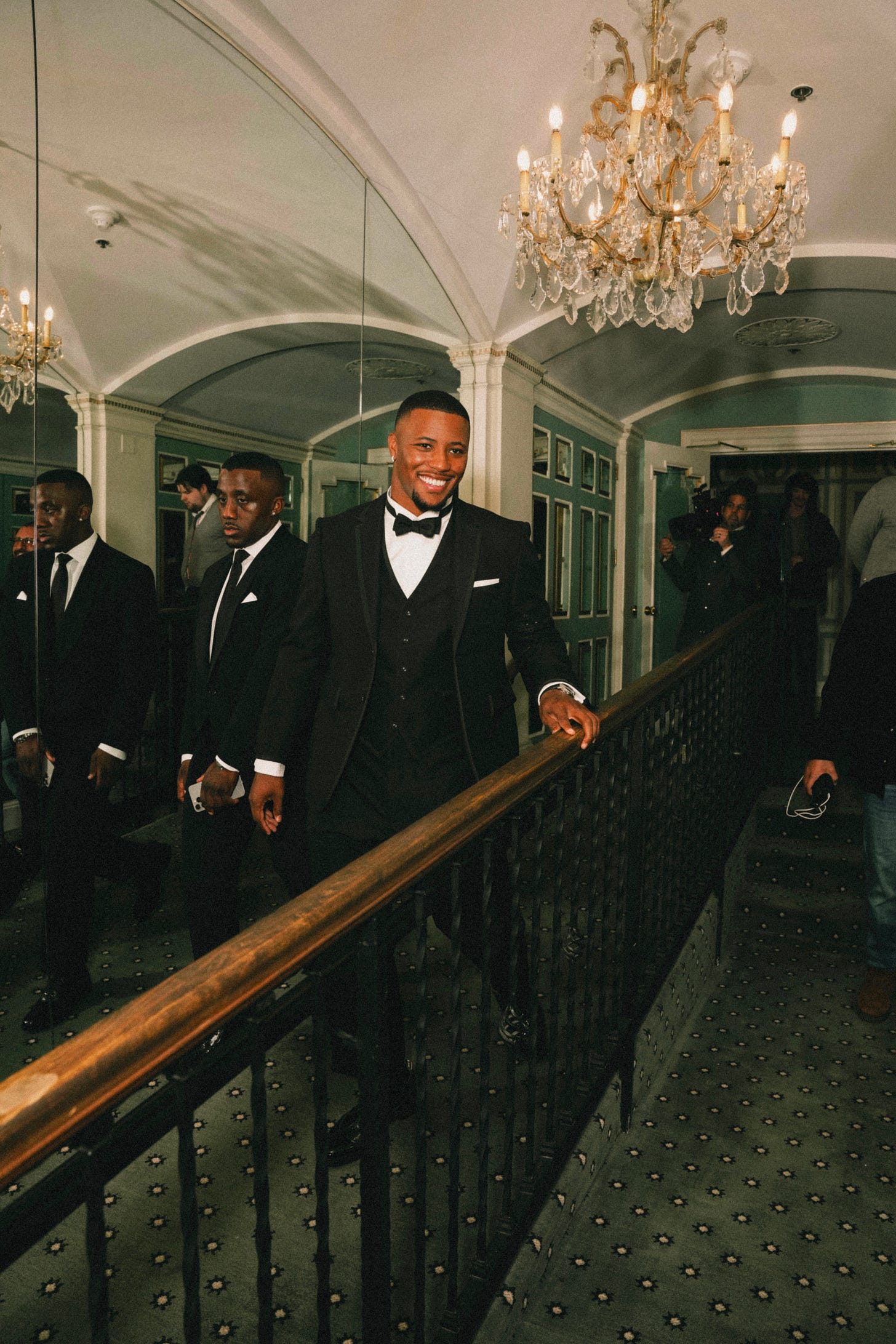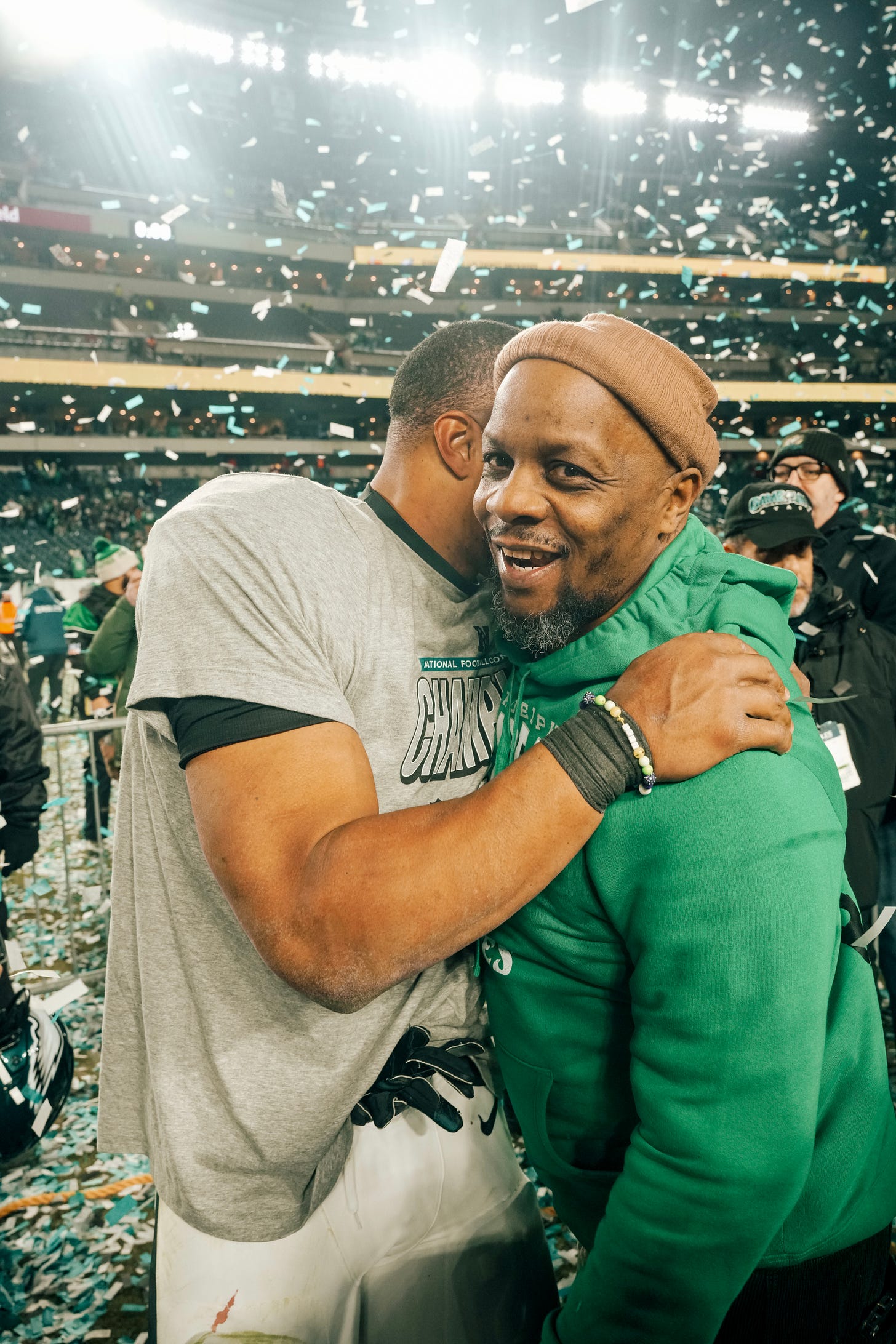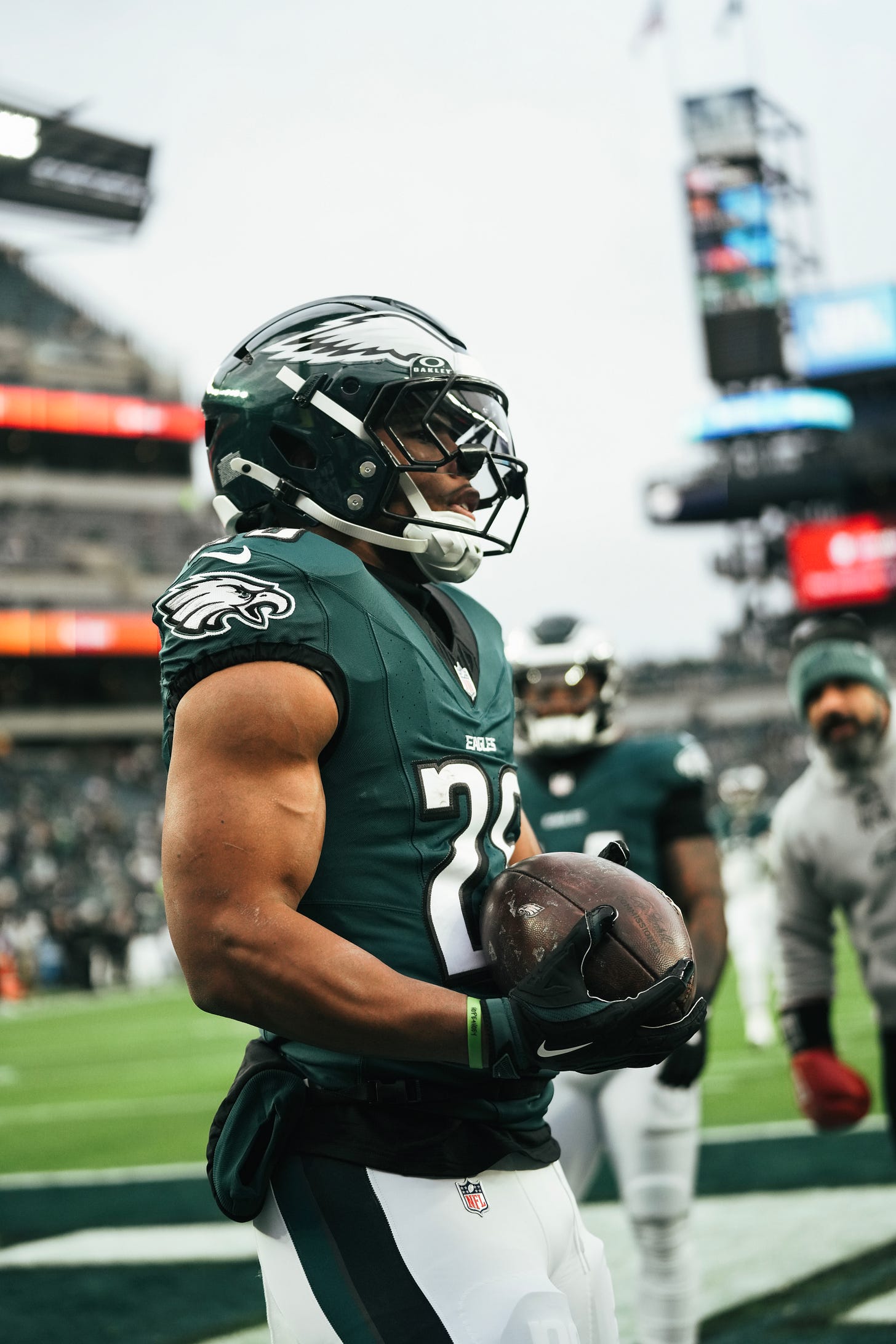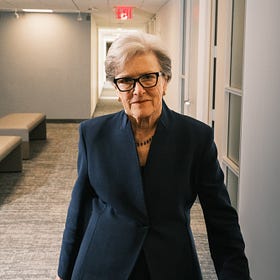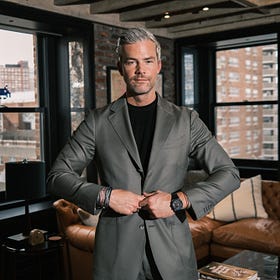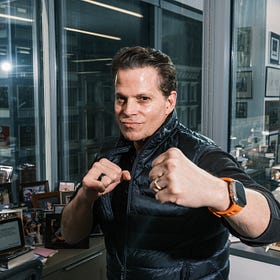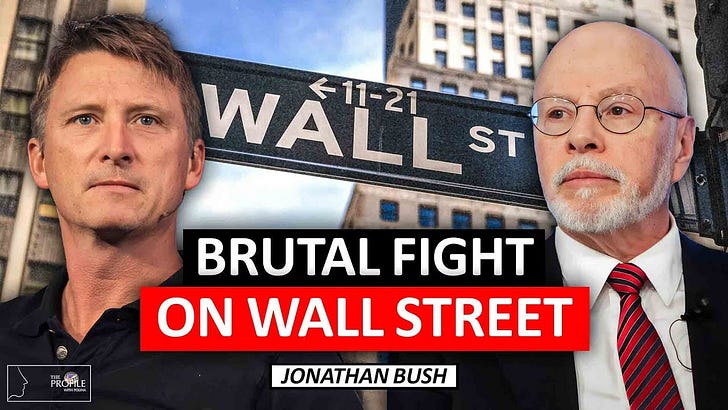Saquon Barkley calls me, but he’s distracted. In the background, two little voices shout “Bye, friends!” as Barkley wrangles his kids, Jada, 7, and Saquon Jr., 3, into the car. He apologizes, then explains they’re headed to an Old Spice photo shoot tied to his latest endorsement — a Saquon-branded shampoo and conditioner called “Saquon Soar.”
It’s a cinematic image: one of the NFL’s biggest stars juggling dad duty and the demands of a sponsorship. But Barkley isn’t content to just cash checks and smile for the camera. He has always treated these deals as building blocks for the empire he’s determined to build before football ends. And he knows it could all end suddenly.
From the moment he entered the NFL in 2018, Barkley carried a kind of financial paranoia that most athletes don’t confront until retirement. He parked his entire $31.2 million rookie contract into long-term investments like the S&P 500, vowing to live only off endorsements.
In 2021, he went further, backing payments app Strike as his first startup investment and pledging to take all marketing income in Bitcoin through the platform. At the time, Bitcoin’s price was approximately $32,000. Today, it’s hovering around $111,000, turning a $10 million income stream into a $35 million asset.
That move rattled more than a few people. “Good old American dollars should be the standard,” superagent Leigh Steinberg warned, cautioning athletes against chasing crypto volatility.
Barkley heard the critics, but he doubled down. Sitting on cash, he argued, isn’t enough — not when most athletes earn the bulk of their money in their 20s and face inflation, poor financial literacy, and limited access to tools. “A sad yet common reality is many enter bankruptcy later on,” he wrote on X. “We can do better.”
His drive isn’t just financial. Barkley has the career most players dream about, but those closest to him say that his humility is born out of a gnawing sense that it could all slip away.
For Barkley, equity is a safeguard — a way to wrest back control from the injuries, draft picks, or franchise decisions that can derail a career overnight.
Football is fragile, while investing gives him a different relationship to risk. It may be volatile, but it’s a risk he can shape. Guided by business manager Ken Katz, he has avoided the typical athlete playbook of podcasts and clothing lines, instead building a portfolio that looks more like an elite venture fund than a celebrity brand.
After reading Peter Thiel’s Zero to One, Barkley was most inspired by the idea of getting ahead by betting on businesses that create something so original that competition becomes irrelevant.
The Profile has exclusively learned that Barkley has invested a portion of his earnings so far — a mix of his rookie contract and endorsement income — across more than 10 private startups, typically writing checks between $250,000 and $500,000.
The high-growth startups in his portfolio include Anthropic (currently valued at $183 billion), Anduril ($30.5 billion), Ramp ($22.5 billion), Cognition ($9.8 billion), Neuralink ($9 billion), Strike (~$1 billion), and Polymarket (~$1 billion). He’s also a limited partner in funds including Founders Fund, Thrive Capital, Silver Point Capital, and Multicoin Capital.
Some of those bets have already appreciated dramatically: Strike, for example, has delivered a 10x return in value since his investment. Barkley has also allocated a portion of his wealth into steadier assets like index funds and real estate, hedging the volatility that comes with venture and crypto.
Unlike peers LeBron James and Serena Williams, who command headlines with splashy business ventures, Barkley’s approach is leaner and more surgical. He is making selective bets on technology companies that he believes are creating lasting value for their users.
The question is whether his bets will hold. Venture investing is inherently risky — even late-stage startups with multibillion-dollar valuations can falter or see their valuations slashed when markets turn. To date, none of Barkley’s investments have flamed out or depreciated, largely because he prefers to come in at later stages of a company’s growth.
In the end, Barkley must confront the question: Is he building something that lasts, or simply trading one kind of risk for another?
For more longform profiles of extraordinary people, make sure to sign up for The Profile here:
A few days before Thanksgiving last year, Ramp CEO Eric Glyman glanced at his phone and did a double take. His colleague Sam Buck had texted that Saquon Barkley wanted to invest in the expense management startup. Glyman was stunned. Most athletes ask for cash in exchange for an endorsement. Barkley wanted equity.
“The best player in the NFL wants to work with us,” Glyman remembers thinking. “Like, what? What’s happening?”
Barkley, who came in when Ramp was valued at $7 billion, didn’t just write a check. Convinced by Ramp’s mission to help businesses cut costs and perform more efficiently, he tied his own fortunes to the company’s — and then went to work to make sure it paid off.
During the 2025 Super Bowl, Barkley starred in a Ramp commercial: a 15-second spot of him, in full pads, drowning in paperwork before Ramp’s automation saves the day.
The ad aired as the Eagles defeated the Kansas City Chiefs, and Barkley set a new single-season rushing yards record for regular season and playoffs combined. For Ramp, it became their biggest traffic day ever. For Barkley, it was one of the rare times an endorsement literally boosted his own net worth.
That was by design. Barkley’s process usually begins with his business manager, Ken Katz, reaching out to a company. Their strategy is to target technology companies and source deals through trusted word-of-mouth referrals in Katz’s investor network. The founder then gets invited to dinner with Barkley, where the running back plays interrogator.
“It’s about asking them what they stand for, what their mission is, why they think they’ll be successful,” Barkley tells me. “They have to be confident, but arrogance is a turn-off.” If he’s interested, he often gives a verbal commitment on the spot.
Sam Buck, Ramp’s head of financial institutions, insists Barkley was never treated like a celebrity mascot. “It was like, ‘Hey, you’re on the cap table now,’” he says. “We’re going to hold you accountable — just like we do with Founders Fund or General Catalyst — to help us grow.”
And Barkley delivered. He FaceTimed Ramp partners to help close deals. He joined customer meet-and-greets. He talked about the company any chance he got.
Fresh off the Super Bowl, he appeared on the TODAY show, still buzzing from the win. He fielded questions about being a champion, about his family, about life off the field. Then TODAY co-host Savannah Guthrie pivoted. “You have your own Super Bowl commercial, by the way, for Ramp, where you’re an investor,” she said. “So tell me how all this came about.”
Barkley didn’t miss a beat. He turned the moment into a plug for his investment: “I fell in love with the team of Ramp … You get a lot of athletes who get involved with brands, and you get a certain dollar to show up and do things. But … as this company grows, I get to grow with it — it takes it to a whole new level for me.”
The strategy is working. Barkley invested $500,000 into Ramp at a $7 billion valuation. The company’s valuation has more than tripled since then, which means his stake is now worth roughly $1.5 million. Earlier this year, Ramp announced $700 million in annualized revenue. “We’re growing faster this year than last year,” Glyman says, “and I don’t think it’s unrelated that Saquon has been involved.”
But Barkley’s commitment also shows up in less public settings. In May, he flew to a Founders Fund symposium in Montana, an event filled with billionaires, CEOs, and top investors. He spent the day listening and networking, before catching a red-eye back to Philadelphia for a morning speaking obligation. Within hours, he was on a return flight to Montana. After another full day at the symposium, he boarded a midnight flight to make it to his daughter’s soccer game the next morning.
Longtime venture investor Brian Singerman noticed his dedication to building meaningful relationships. “That stuff is impossible to fake,” he says.
Even so, Barkley isn’t blind to the trade-offs. For someone intent on building generational wealth, venture capital represents both the biggest swing and the biggest vulnerability.
“Honestly, putting your money in the S&P is going to beat 90% of venture capital,” says Singerman, who is one of Barkley’s advisers. “But that last 10% is going to crush the S&P.”
This version of Barkley — the investor, the owner — didn’t come naturally. He didn’t grow up with stock tips or startup dinners. His financial philosophy was shaped by something starker: watching what happens when the money runs out.
When Barkley tells me about growing up in the Bronx, he chooses his words carefully. He had a loving family, he says, and doesn’t remember feeling the financial instability, at least not consciously.
But to understand his obsession with money, risk, and generational wealth, you have to start with his parents. Tonya and Alibay were both born in the Bronx and raised five children together.
In 2001, when Saquon was four, the family left for Pennsylvania. Over the years, Tonya developed a motto she repeated often: “All things are possible.” She believed it because she had lived it, navigating crises that could have broken the family but didn’t.
One of those crises came when Barkley was in elementary school. The family was evicted and spent eight months without a home. The shelter system wouldn’t take fathers, so they were split up. Barkley and his sister went to live with a family friend while his parents scrambled to rebuild.
“Financially, we obviously struggled, but my mom and dad never made us feel that,” he says. “It wasn’t like we were on the streets. We had family and friends who took us in, but [the experience] did give me the perspective I have on life right now.”
His father carries his own formative scar. A gifted boxer, Alibay had made it to the semifinals of the 1992 New York State Golden Gloves before his shoulder gave out. He couldn’t afford surgery. At 21, he quit — not by choice but by circumstance.
“I never had the money to get it fixed,” he says. The missed chance haunted him, and it became the lesson he drilled into his children: never quit on your passion. “If you quit this, it will be easy to quit jobs, quit relationships, quit on your kids,” he says. “That’s probably why Saquon is so adamant when he gets hurt about still being in there.”
That “never quit” mantra became Barkley’s compass. At 13, frustrated in school and doubting football, he thought about walking away. His father told him the boxing story again. It stuck.
From then on, Barkley zeroed in. He would play football, and he would become great.
“Growing up, he had flashes of being great, but there was always someone in front of him,” says childhood friend Nick Shafnisky. “He was never going to let someone say he wasn’t the best.”
At Penn State, Barkley fulfilled that prophecy, boasting 3,843 rushing yards and 43 touchdowns in three seasons. Head coach James Franklin drilled players with one message: “Use football to build generational wealth. Don’t let football use you.”
Barkley took it to heart. One night, Franklin overheard his wife on a call talking about real estate. He showered, brushed his teeth, and got into bed, and she was still on the phone. When she finally hung up, he asked who it was. “It’s Saquon,” she told him.
He was working on his first real estate investment and wanted to understand how to structure the deal and spot potential red flags. “I think curiosity is a really important trait in successful people, and Saquon is very curious,” Franklin tells me.
His questions about money and wealth went from theoretical to real when the New York Giants drafted Barkley second overall in the 2018 NFL Draft and handed him a $31 million rookie contract. He delivered immediately: 1,300 rushing yards, 91 receptions, Rookie of the Year, Pro Bowl. The dream was intact — until it wasn’t.
In Week 2 of the 2020 season, against the Chicago Bears, Barkley was tackled awkwardly near the sideline. He clutched his knee and was carted off the field. The diagnosis? A torn ACL, partially torn meniscus, and an MCL strain. It was a devastating cocktail of injuries. “I definitely had some dark moments during that time,” Barkley says. “I had those moments of, ‘Man, why me?’”
Whether Barkley realized it or not, it was his father’s nightmare revisited: one injury, one twist, and everything could vanish. At Katz’s suggestion, Barkley watched Peter Thiel’s “Competition Is for Losers” lecture at Stanford and read his book Zero to One, both of which left an impression. Thiel’s argument — that the biggest returns come from a few breakthrough bets — resonated. Football suddenly felt fragile, and investing began to feel urgent.
His return to the NFL was shaky. In 2021, after months of rehab, he sprained his ankle early in the season and stumbled to a career-low 593 rushing yards. Friends say he wasn’t himself. His mom reminded him: “No matter what, you can always get back up.” He did. By 2022, Barkley was back at 1,300 yards and another Pro Bowl.
But it was no longer possible to ignore the reality that his body and career were vulnerable. The Giants reminded him of that in 2023 when they slapped him with the “franchise tag.” It was a one-year deal — not the long-term contract he had earned. To Barkley, it was a gut punch. Even after proving himself, he was treated as expendable.
“It was a very contentious situation,” says former NFL defensive great J.J. Watt. “[Barkley] was the star of [the Giants], and they basically kicked him out the door.”
Publicly, Barkley stayed composed. Privately, the rejection lit a fire. Running backs have the shortest shelf life in the league, but his bigger worry was what comes after. Approximately 78% of NFL players face financial distress within two years of retiring, and he was determined not to be one of them.
By then, he had already built a portfolio and a mindset beyond football. In 2024, Barkley left the Giants for a three-year, $37.75 million deal with the Philadelphia Eagles.
It was a declaration that he knew his value, and he wasn’t going to sign a deal that didn’t reflect it.
In February 2025, confetti rained down on the Philadelphia Eagles after they defeated the Kansas City Chiefs in the Super Bowl. Barkley had delivered — a standout game, a title, and the biggest win of his career on his 28th birthday. “I don’t think anything is going to top this,” he said on the field moments after the final whistle.
That night, Barkley threw an afterparty at St. Pizza in New Orleans. The guest list was surreal, including Leonardo DiCaprio, Pete Davidson, Zac Efron, and Chance the Rapper. But scattered among the celebrities was a quieter, more unexpected group: the founders of Barkley’s portfolio companies.
Jack Mallers, CEO of Strike, was one of them. “I felt bad for him,” Mallers says. “Even though he had just won the Super Bowl and it was his birthday, it felt like he was still working. He took a photo with everyone. Answered every question. Asked the founders how business was going. It was unbelievable.”
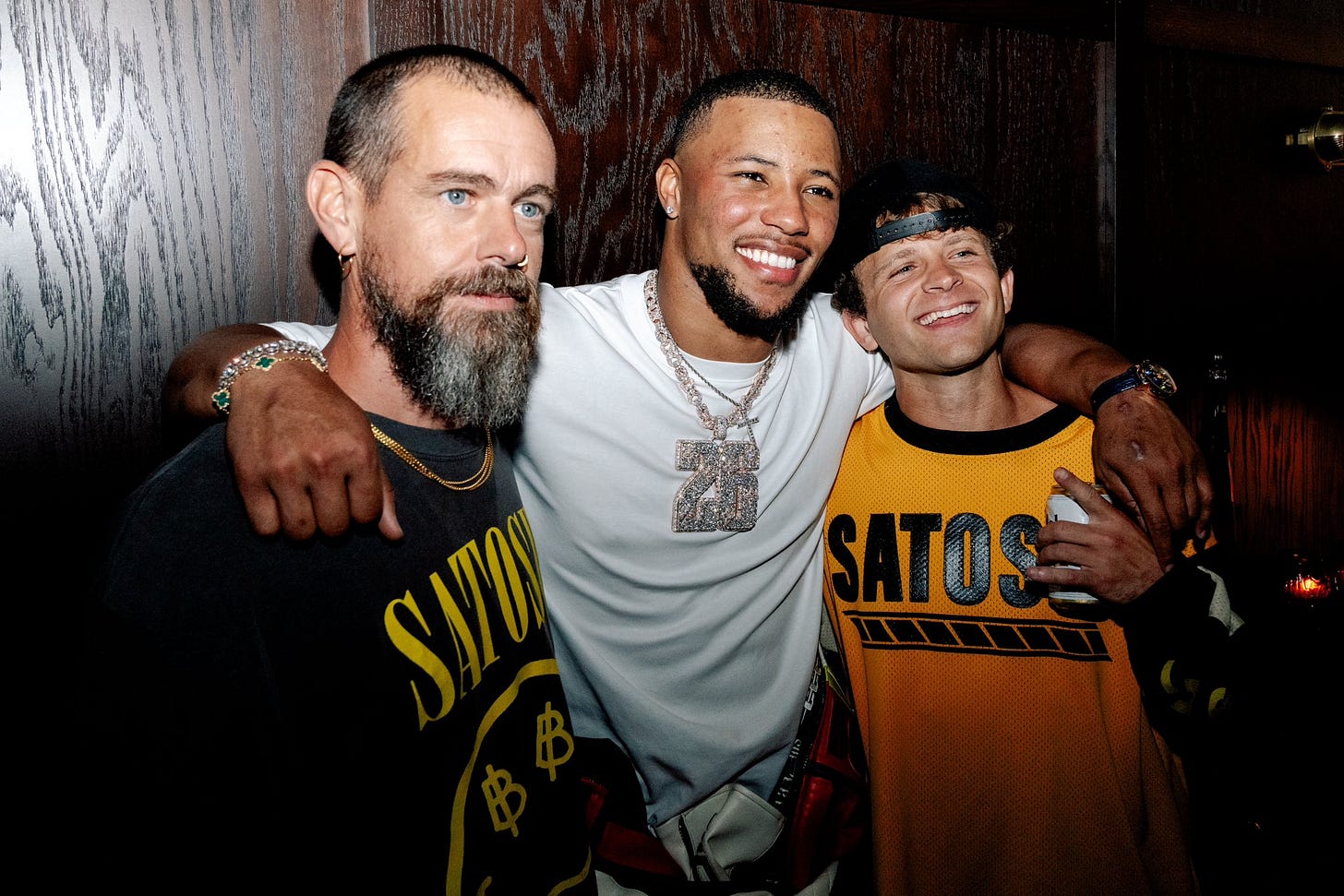
Mallers first met Barkley through an email from business manager Ken Katz with the subject line: Saquon Barkley loves Bitcoin. “It felt like a scam,” Mallers laughs. But after dinner with Barkley, he realized the interest was real and gave him a spot in Strike’s $100 million round. Barkley invested $100,000, and today the company is reportedly valued at over $1 billion, marking a 10x return on his stake.
That deal forged a deep relationship. Since they met, Barkley and Mallers have spent hours debating Bitcoin as a store of value. In 2021, Barkley went all in on the digital currency, announcing he would convert 100% of his endorsement income — Nike, Pepsi, Visa, Dunkin’ — into Bitcoin using Strike.
The move was yet another example of Barkley using his platform to amplify a company in which he has equity. “The average NFL career is 3 years and inflation is real,” he tweeted. “Saving and preserving money over time is hard… Bitcoin is a proven, safe, global, and open system that allows anyone to save money.”
Crypto executives hailed his entrance into the world of Bitcoin. “He’s setting a blueprint for athletes to take charge of their financial future,” says Coinbase president Emilie Choi. But traditional advisers recoiled. “The value of Bitcoin is much more volatile than the value of the U.S. dollar,” one financial planner warned in an op-ed. “How would you feel if your hypothetical Bitcoin paycheck was worth 10% less the day after it was deposited into your account?”
For a while, Barkley looked prescient as his holdings appreciated in value. Mallers even joked, “My goal was to help him earn more through Bitcoin and Strike than he would in the NFL. And I think he will.”
But then came the crash. Famed crypto exchange FTX collapsed near the end of 2022, its founder was accused of fraud, and Bitcoin’s price plunged below $16,000 — more than 50% below the level at which Barkley had invested.
As he scrolled through the taunts on social media, Barkley picked up the phone and called Katz, asking the question on everyone’s mind: “What is going on?”
Katz told him to hold, and Barkley did. When I ask about embracing risk in that moment, he likens it to football: one week you’re celebrated, the next you’re vilified. Volatility, he says, is temporary.
That discipline is rooted in his partnership with Katz. The two met when Barkley was still at Penn State and Katz was 24, hustling to break into sports management. A decade later, Katz is still his consigliere who pushes him to think like a contrarian.
Katz has consistently advised Barkley to use his influence to win deals. “My thesis has always been: Use the fame to get equity in the companies of the best founders in the world,” Katz says.
The result is an unusually hands-on approach. Barkley keeps his circle small: just Katz, his financial adviser, and the founders he backs.
Compare that to NBA star Kevin Durant, whose investment firm 35V operates with more institutional rigor and a tilt toward safer asset classes like private equity and real estate. “You’re still getting ownership, but it’s just not as risky as venture,” says co-founder Rich Kleiman.
While Durant’s portfolio spans more than 100 companies, Barkley approaches investing with the focus of a rogue founder. He doesn’t have a fund structure, and he doesn’t neatly follow a playbook. He makes direct bets on companies that excite him. The strategy is lean, contrarian, and far more exposed.
That ethos resonates with Russell Okung, the first NFL player to take part of his salary in Bitcoin.
His advice for Barkley? “You’re not an athlete-investor, you’re an investor who allocates your time playing sports. The old model extracted value from athletes. The new model lets athletes extract value from everything else.” He adds, “Why be talent when you can be management? The cap table is where real wealth lives. It's where upside multiplies.”
It’s a mindset Barkley has adopted fully, though it comes with a healthy dose of risk. Where most of us see volatility as a warning sign, he recognizes it as something familiar.
Growing up without a safety net taught him that uncertainty can be an opening. “I’m not going to just jump into a pool of sharks,” he says, “but I do have a little bit of: ‘I don’t give a you-know-what.’”
Two days before the NFL draft, Barkley became a father. His daughter, Jada, arrived before the cameras and before the multimillion-dollar contract.
He remembers looking into her eyes and seeing the future flash before his. In that moment, he realized he wasn’t just building for himself anymore. He was building a world she could inherit.
“I was 21 when she was born,” he says, as Jada chatters in the car beside him. “I have a different dynamic with my kids than my parents had with me because I want to teach them how to be more financially literate. I’m still trying my best to learn, but as I learn, they’ll learn too.”
To Barkley, investing is about one thing: control. He is trying to manufacture permanence while playing a game defined by uncertainty. His ultimate driver, he says, is his family: his fiancée, Anna, and his kids. “If you had asked me this question two years ago, then my answer would’ve been, ‘I want to be the best football player,’ but it’s not about just that anymore.”
That shift is born out of urgency. Football is the most clock-driven sport, and his position is the most precarious. Does he feel the same countdown in his own career?
“It’s funny you ask me that,” Barkley says. “Because that’s something that was on my mind this morning. I was just thinking about how I can only play for so long, so I really gotta take advantage, keep investing, and create wealth for me and my family.”
He knows the day is coming when his body will tell him the game is over. But when his children ask what he built, he doesn’t only want to point to highlight reels or rushing titles. He wants to point to ownership — proof that he wrestled fragility into permanence.
That is the paradox of Saquon Barkley: a man willing to gamble with risk in his life so that his kids never have to feel the sharp edge of uncertainty in theirs.
-
Written by Polina Pompliano | Edited by Laura Entis / Photos by Sharif Fennell Jr. / Video by Matt Marlinski
Want more longform stories like this? Sign up for The Profile:
Check out more original profiles here:
New York's Most Powerful Woman Is Retiring. But Don’t Call This Her Last Act.
Kathryn Wylde is in the back seat of a car, working the phone as she arranges a meeting between New York City’s most powerful figures and its incoming mayor, Zohran Mamdani.
Ryan Serhant Won’t Stop Until He’s No. 1
In the greenroom at the TODAY show, Ryan Serhant, dressed in a tailored sage suit and sporting his signature gray hair, flips through notes as producers buzz around him.


